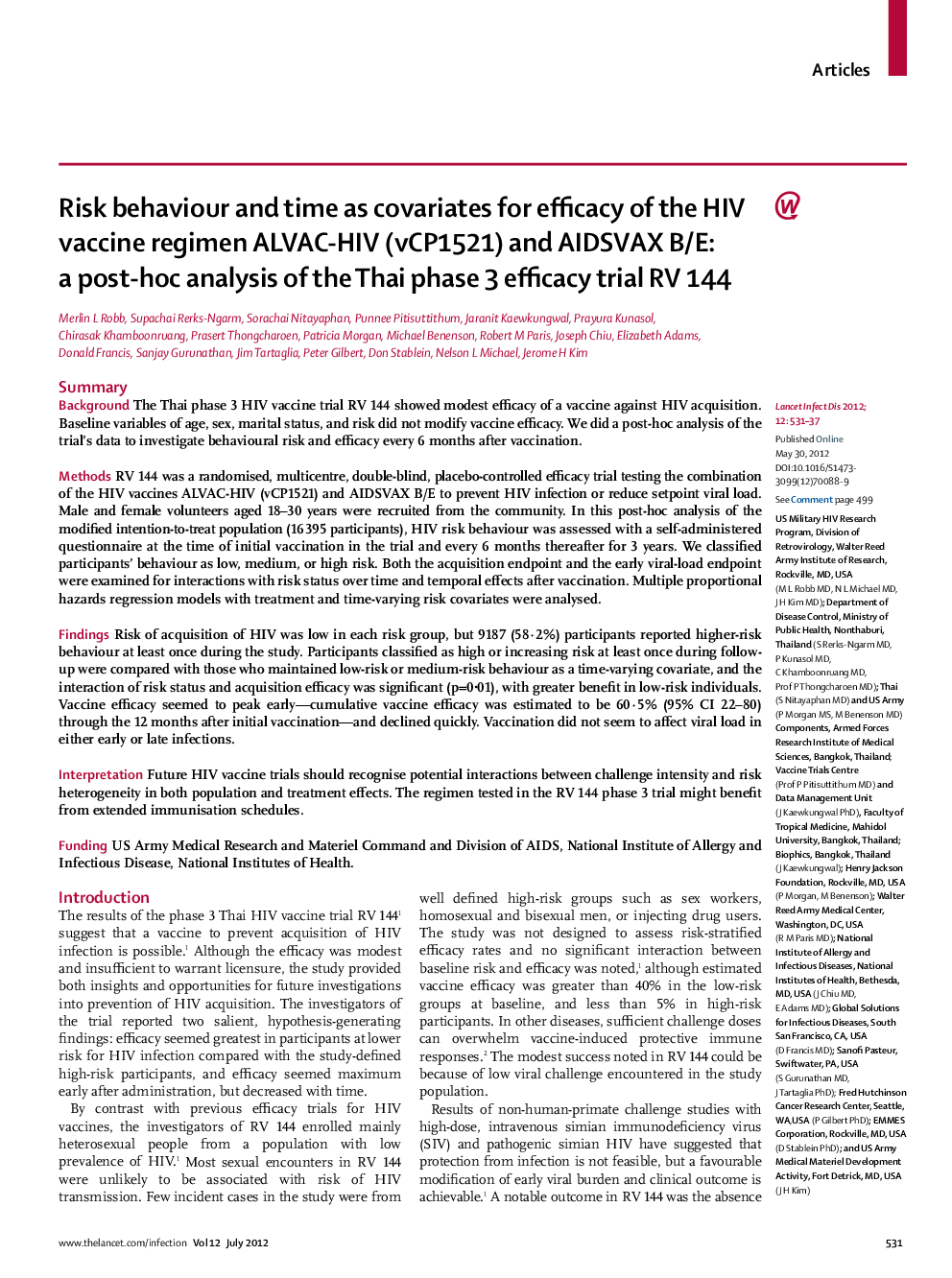| Article ID | Journal | Published Year | Pages | File Type |
|---|---|---|---|---|
| 3411174 | The Lancet Infectious Diseases | 2012 | 7 Pages |
SummaryBackgroundThe Thai phase 3 HIV vaccine trial RV 144 showed modest efficacy of a vaccine against HIV acquisition. Baseline variables of age, sex, marital status, and risk did not modify vaccine efficacy. We did a post-hoc analysis of the trial's data to investigate behavioural risk and efficacy every 6 months after vaccination.MethodsRV 144 was a randomised, multicentre, double-blind, placebo-controlled efficacy trial testing the combination of the HIV vaccines ALVAC-HIV (vCP1521) and AIDSVAX B/E to prevent HIV infection or reduce setpoint viral load. Male and female volunteers aged 18–30 years were recruited from the community. In this post-hoc analysis of the modified intention-to-treat population (16 395 participants), HIV risk behaviour was assessed with a self-administered questionnaire at the time of initial vaccination in the trial and every 6 months thereafter for 3 years. We classified participants' behaviour as low, medium, or high risk. Both the acquisition endpoint and the early viral-load endpoint were examined for interactions with risk status over time and temporal effects after vaccination. Multiple proportional hazards regression models with treatment and time-varying risk covariates were analysed.FindingsRisk of acquisition of HIV was low in each risk group, but 9187 (58·2%) participants reported higher-risk behaviour at least once during the study. Participants classified as high or increasing risk at least once during follow-up were compared with those who maintained low-risk or medium-risk behaviour as a time-varying covariate, and the interaction of risk status and acquisition efficacy was significant (p=0·01), with greater benefit in low-risk individuals. Vaccine efficacy seemed to peak early—cumulative vaccine efficacy was estimated to be 60·5% (95% CI 22–80) through the 12 months after initial vaccination—and declined quickly. Vaccination did not seem to affect viral load in either early or late infections.InterpretationFuture HIV vaccine trials should recognise potential interactions between challenge intensity and risk heterogeneity in both population and treatment effects. The regimen tested in the RV 144 phase 3 trial might benefit from extended immunisation schedules.FundingUS Army Medical Research and Materiel Command and Division of AIDS, National Institute of Allergy and Infectious Disease, National Institutes of Health.
